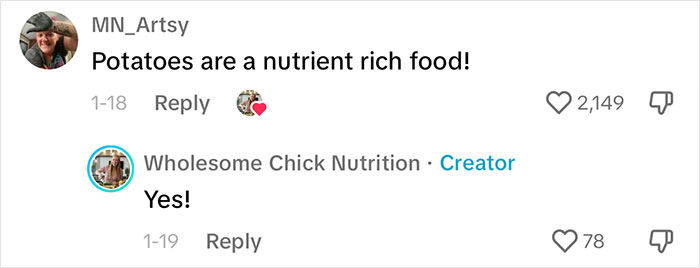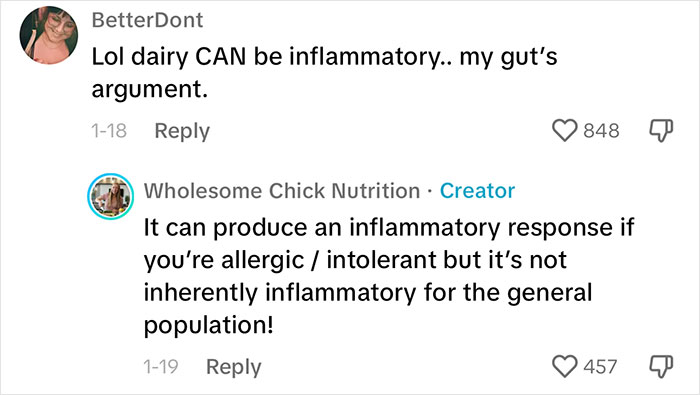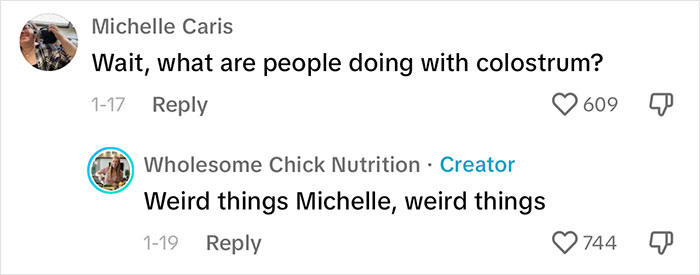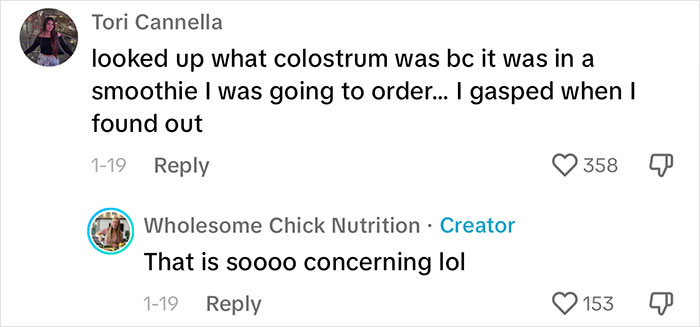Eating Disorders Awareness Week is from February 26 to March 4 this year. We kick it off with registered dietician Kate Regan from Wholesome Chick Nutrition who shared an educational TikTok video where she spreads knowledge about the alarming amount of misinformation about food, health, and weight on the internet.
Regan’s brief recording went viral, currently holding over 2.7 million views. In it, she debunks toxic food myths made without any scientific evidence. Scroll down to find 16 nutrition misconceptions that negatively affect our relationship with food without us even realizing it.
The internet is alarmingly full of misinformation about food, health, and weight

Image credits: Adrienn / pexels (not the actual photo)
This dietician combats it by debunking toxic food myths
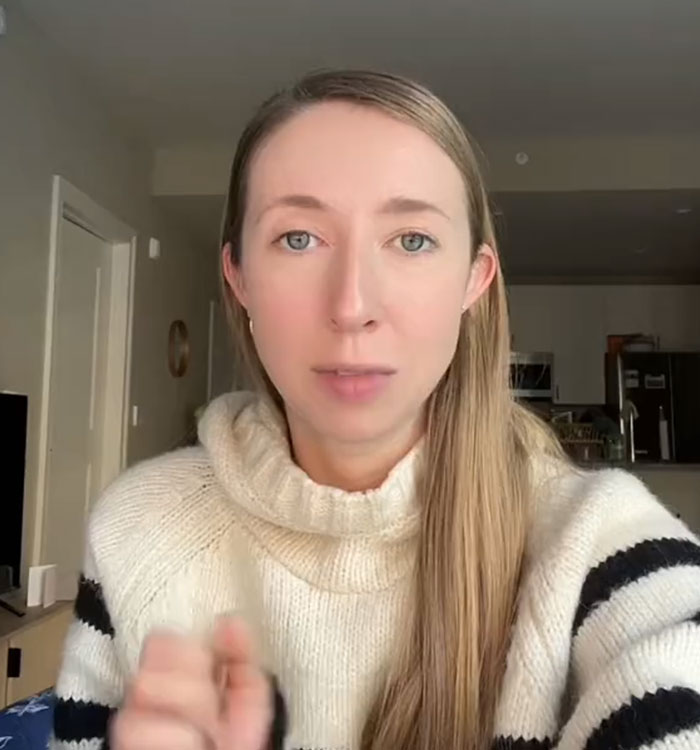
“Fruit and carrots don’t have too much sugar. Dairy is not inflammatory. Colostrum is a weird wellness trend and you do not have to partake.”
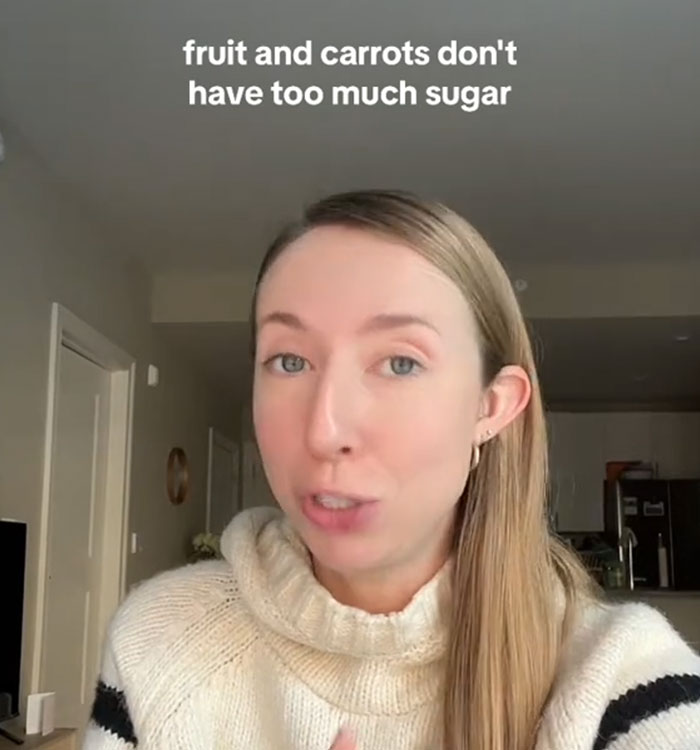
“It’s better to get your nutrition through food than from greens powders or 30 different supplements. You’re probably not bloated because you have leaky gut. You might just not be eating enough food.”
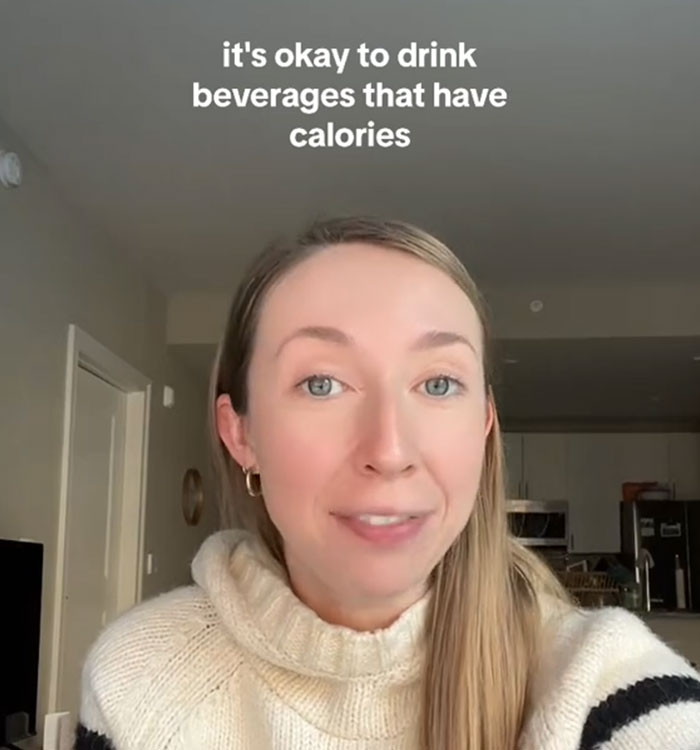
“It’s okay to drink beverages that have calories. You don’t have to save pizza, bagels, and chips for the weekend. You can have them any day of the week. Cheat days are essentially planned binges.”
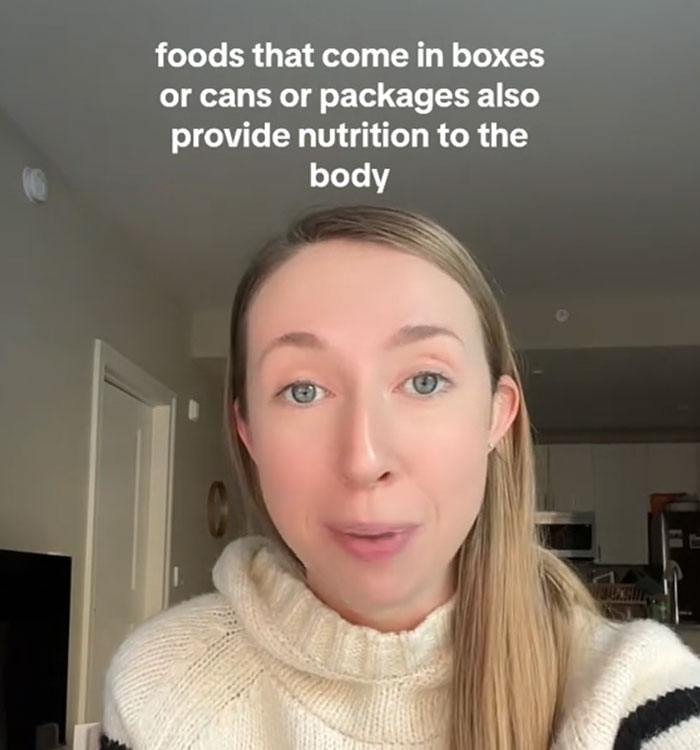
“You don’t have to only shop on the perimeter of the grocery store. Foods that come in boxes, cans, or packages also provide nutrition to the body. White rice is not all that different from brown rice, so eat whatever rice you enjoy.”
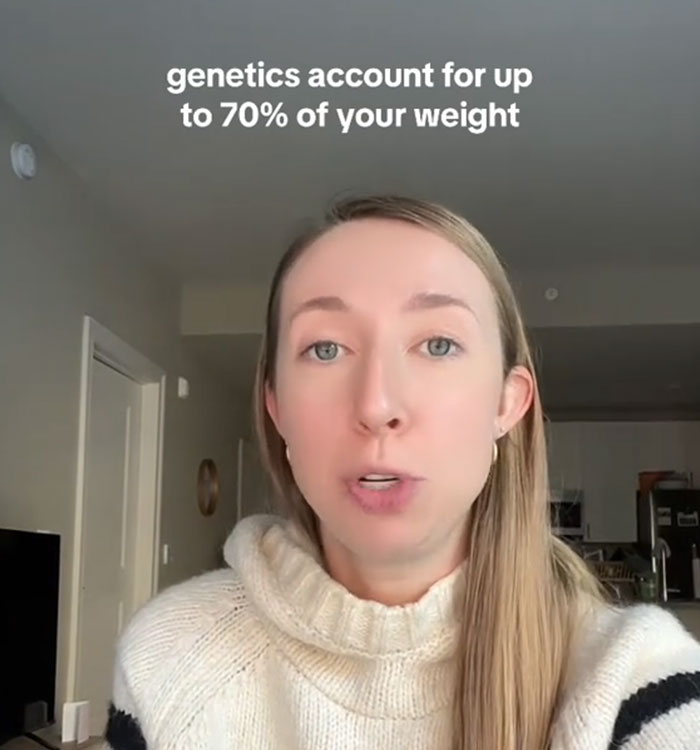
“Genetics account for up to 70% of your weight. You’re allowed to eat past eight o’clock at night. The body’s digestive system doesn’t just shut down. You’re not a bad person for eating fast food or takeout. BMI is a silly way to measure health and self-worth. You shouldn’t be getting your nutrition advice from men running around the grocery store barefoot.”
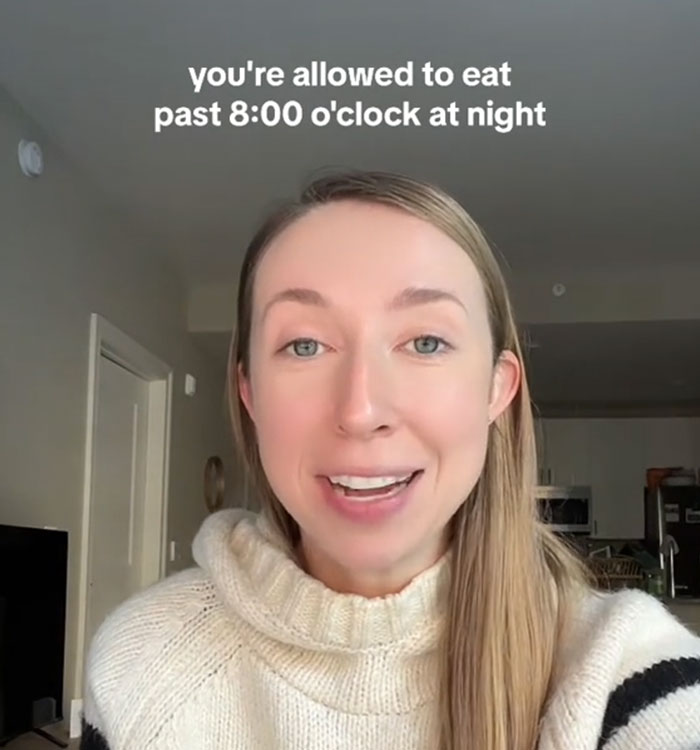
“It’s really not important to know what your weight is unless you’re going under anesthesia or your doctor needs to dose a medication appropriately. Stick around for more friendly reminders from a registered dietician who cares about your relationship with food.”
@wholesomechicknutrition Which one did you need to hear today? 👇🏻 #intuitiveeating #intuitiveeatingcoach #foodfreedom #wellnesstrends ♬ original sound – Wholesome Chick Nutrition
“Build trust with your body and establish a positive relationship with food”
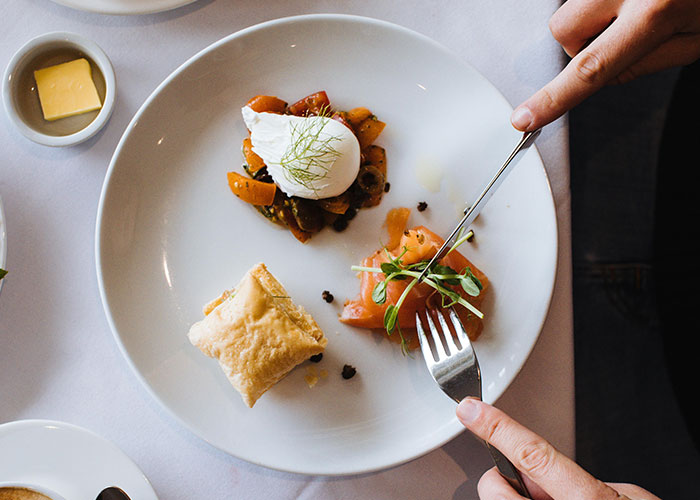
Image credits: Rachel Claire / pexels (not the actual photo)
Regan is a non-diet dietician who tries her best to counteract the idea that our self-worth is defined by the food we eat and how we look. Or that a smaller body is automatically healthier, or that we are in full control of our size and shape.
People believing this objective often feel unhappy with their image and find themselves further away from being healthy. Some even become so obsessed with the idea that all they can think about is food and weight. When, in reality, all food is just fuel for the body and mind, and it shouldn’t be demonized as it is in this day and age.
The team behind Wholesome Chick Nutrition believes that “you don’t need more of the same. It’s time to forge a new path, friend. One filled with body trust, food peace, and self-compassion. Gentle nutrition, mindful movement, and authentic living. It’s time to start treating your body like a teammate, not the enemy.”
Regan utilizes the intuitive eating framework in her practice and videos, which focuses on the ability to identify the body’s hunger and fullness cues to establish healthy eating patterns, remove any guilt and shame that comes with it, and learn to eat food without obsession or restriction.
She told Buzzfeed that it helps to “build trust with your body and establish a positive relationship with food, especially if you’ve been dieting or struggling with disordered eating for a long time.”
Taking a more in-depth look at Regan’s intuitive eating reminders
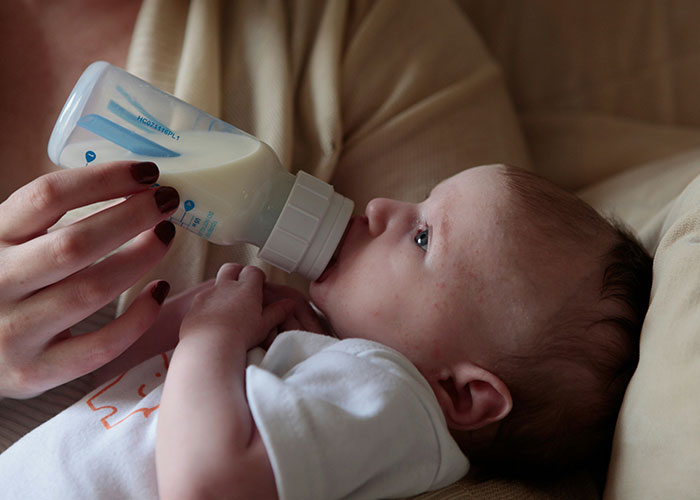
Image credits: Lucy Wolski / unsplash (not the actual photo)
People in the comments were confused about some of the things Regan mentioned in her video, colostrum being one of them. It’s the first milk that humans or other mammals start producing after their newborn is delivered.
Because of its great qualities, like high nutrition and antibodies, it has been made into supplements. Companies are selling them and claiming they can help fight diseases, improve digestion, speed up skin regeneration, and so much more.
While this substance is very beneficial for babies, there isn’t substantial evidence to believe that adults can experience positive effects from taking it. So, big organizations are essentially profiting from selling and marketing products adults don’t really need.
Another term Regan mentioned was “leaky gut syndrome,” which is often used in the wellness world, though it’s not recognized as a medical diagnosis. The proposed condition causes defects in the intestine walls that allow bacteria and toxins to enter the blood. This supposedly results in bloating, gas, cramps, food sensitivities, and aches and pains.
Since bloating is one of the symptoms, Regan told Buzzfeed, “Some may think that’s what they are struggling with when, in reality, a much more likely cause is either not eating enough food or not eating a wide enough variety of food.”
While even some doctors recommend not eating past 8 p.m. as one might not be active enough to burn off the extra calories, Regan says that this advice is rooted in “fatphobia” and places shame on people who eat before bedtime. The only time she would suggest changing their eating habits at night is if it interferes with their quality of sleep or if they have acid reflux.
“Honoring your hunger, no matter the time of day is important in order to build trust and connection with your body. If your body is asking for food through the form of hunger cues, it has a reason to do so (it needs energy!). Your digestive system doesn’t just shut off at a certain time of the night,” she adds.
“It’s important for people to hear evidence-based and realistic information from a dietitian”
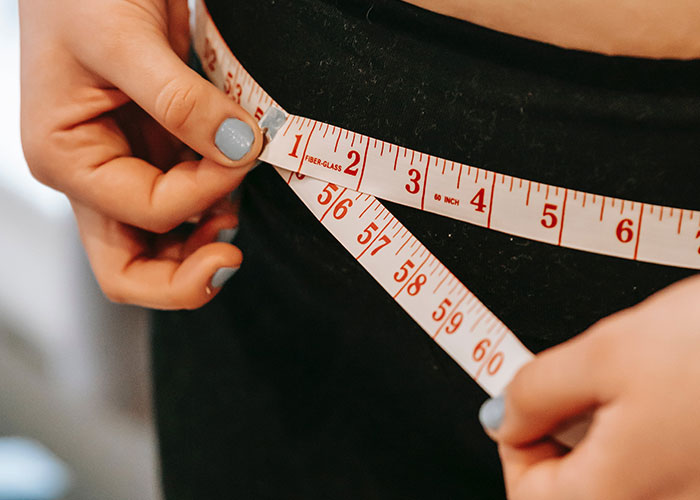
Image credits: Andres Ayrton / pexels (not the actual photo)
What Regan wishes to achieve with her practice and videos is to provide evidence-based and realistic information so people don’t fall for wellness trends or biased, anecdotal statements. She also wants to help others see that nutrition doesn’t have to be confusing or complicated and that we don’t have to buy into the latest diet craze to be healthy.
She told BuzzFeed, “Many wellness trends that circulate in our culture today are usually tied back to some product or service for profit. Just remember that you can’t ‘wellness hack’ your way to true, lasting health, and there are no quick fixes.”
In her journey to becoming a dietician, she was also drawn to the idea that being healthy means shrinking your body. Ultimately, trying to gain control of her well-being put her in the unhealthiest place, both physically and mentally. Having healed her relationship with food, she believes that her experience allows her to connect with others struggling in a similar way.
She concluded by saying, “If you feel like you might be struggling with any level of disordered eating, it can be really scary and overwhelming. I encourage you to reach out to an eating disorder therapist or registered dietitian for support. It also could be helpful to share that you are struggling with someone you feel close to in your life so that you feel less alone on your healing journey.”
People felt supported because of her video
